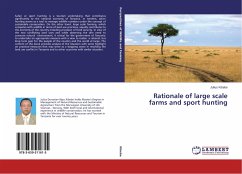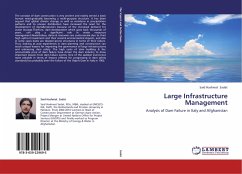Safari or sport hunting is a tourism undertaking that contributes significantly to the national economy of Tanzania. In tandem, safari hunting serves as a tool to manage wildlife numbers under the concept of sustainable conservation. On the other hand, large scale farming, which competes with wildlife in terms of land use practices, equally contributes to the economy of the country including provision of food security. In view of the two conflicting land uses and while observing the dire need to conserve natural environment, it critical for the government of Tanzania to undertake an appropriate measure with a view to realize a rational, but long term gain for the people of the country and the world at large. The content of this book provides analysis of the situation with some highlight on practical measures that may serve as a stepping stone in resolving the land use conflict in Tanzania and to other countries with similar situation.
Bitte wählen Sie Ihr Anliegen aus.
Rechnungen
Retourenschein anfordern
Bestellstatus
Storno








